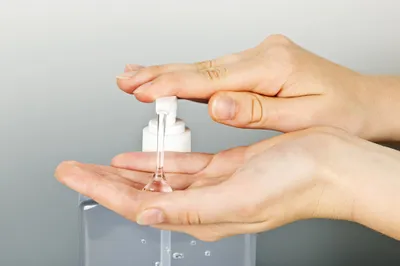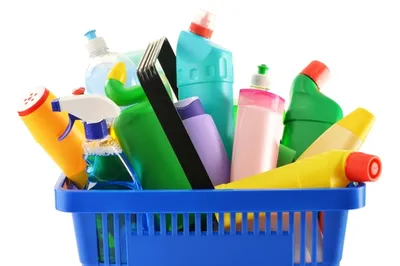Keeping your house germ-free isn’t just a battle to be fought during cold and flu season. It’s a year-long endeavor—especially if you have school-aged children at home. According to the Public Health Agency of Canada (PHAC), 80-percent of common infections are spread through contaminated hands.
Short of wearing a HAZMAT suit when someone is sick in your home-sweet-home, these quick tricks will help keep your home germ-free…
1. Get Everyone to Wash Their Hands
Yes, you may think hand washing is an obvious tip, but you’d be surprised at how often this one isn’t enforced. Hand washing is a crucial way to prevent germs from spreading between family members.
That’s why the Public Health Agency of Canada (PHAC), recommends proper hand hygiene as an important first-line defense against the spread of germs. So suds up as soon as you walk in the door, after you put the groceries away or unpack school lunches—it’s recommended to lather up for 20 seconds or so.
2. Carry Hand Sanitizer
You don’t have to risk bringing germs home with you—from work, from school, or from the playground—if you’re out of the house and there’s not a sink and soap in sight.
If you’re out and about, carry a bottle of hand sanitizer with you. The PHAC recommends hand sanitizers that contain between 60- and 80-percent alcohol to clean your hands when soap and water aren’t available.
3. Surface Clean Hot Spots in Your Home
Whether you use disinfecting wipes or paper towels and all-purpose cleaner, wiping frequently touched surfaces can really make help stop the spread of germs.
Focus on door knobs, sink faucets, railings, and tables. Sanitizing these “high risk” surfaces can be your best defense when it comes to preventing germs from spreading.
4. Highest Risk Germ Areas
The highest concentration of germs in your home, or “high risk germ zones, aren’t the areas that you likely think they are. For instance, while germs do usually accumulate in the kitchen and bathroom—other likely sources include electronics.
For instance, your smartphone, laptop, computer keyboard, and tablet are rife areas for germs to collect and thrive. So be sure to give these most-handled areas the clean treatment by disinfecting these rooms, surfaces, and gadgets frequently, especially if someone in the house is sick and has recently come into contact with them.
5. Disinfect Your Electronic Gadgets
Do you know how many germs live on your cell phone? What about your tablet, eReader or laptop? You may be terrified to learn that most of our hand held devices can carry 10 times more bacteria than most toilet seats. Ewwww! Disinfecting, not just wiping clean the surfaces of your electronic and mobile devices is a crucial step in your germ warfare at home.
Antibacterial wipes or a cotton ball dipped in rubbing alcohol can be used. If you don’t have either of those, the next time you use some hand sanitizer, gently rub you damp hands on the surface areas of your phone.








